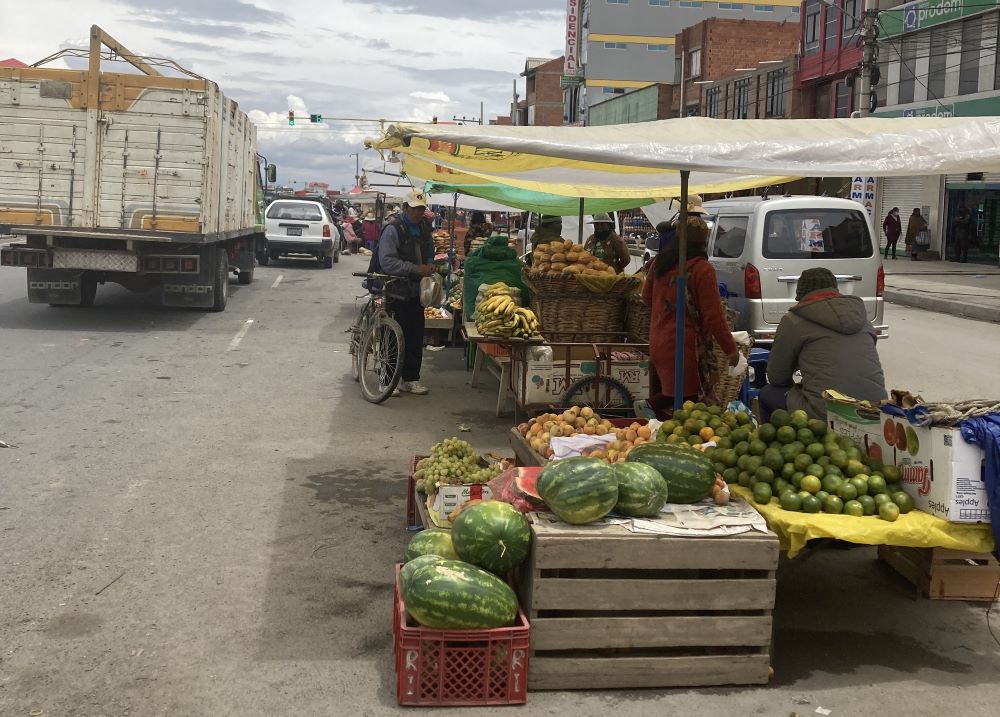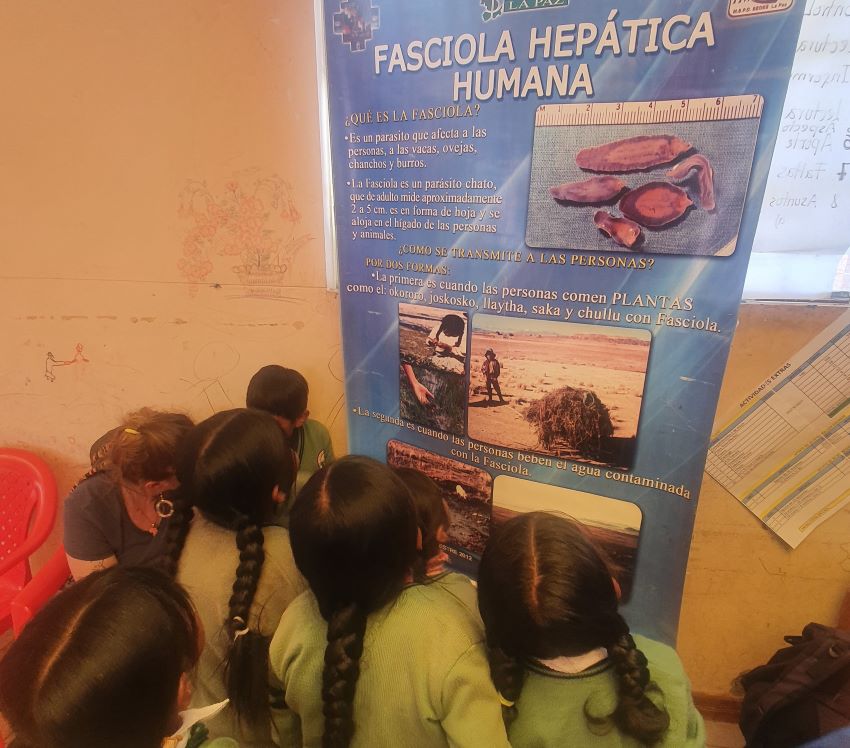
| Responsible | Valero Aleixandre, María Adela | |
| Country | Bolivia | |
| Contribution | 20.000 € |
This is a development project designed on the broad base of knowledge obtained in many years of research on the human Fascioliasis disease in the hyperendemic zone of the Bolivian Northern Altiplano, including 3 Axes of activities, all of them aimed at the implementation of an action of Control that improves the current efficacy of massive chemorophylaxis applied annually as part of the previous pilot initiative of WHO-PAO.
This project was addressed at carrying out complementary strategies to prevent the transmission of human Fascioliasis in the Bolivian Northern Altiplano. Given the association of Fascioliasis with the consumption of wild aquatic plants with the infesting metacyclic form, the present project was directed to the analysis of vegetables for human consumption that imply a greater risk and the search for the physical and chemical agents that applied to vegetables have effective effects in eliminating the parasite. These studies, focused on the fight at the level of the infesting form of metacercaria, will provide the necessary information when designing disease control measures and avoiding human reinfection. The actions were aimed at the development and implementation of methodologies for the processing of foods involved in the transmission of human fascioliasis that guarantee food safety.
Subsequently, the instructions for the control of human fascioliasis were transferred to Bolivian health officials, made up of men and women, who disseminated the measures to boys and girls, teachers and mothers in the endemic area. This system involves women in the proposed fascioliasis control system.
Images:









